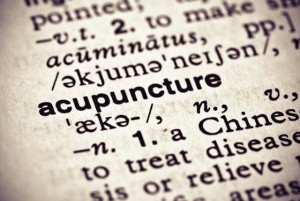 Acupuncture in Mississauga at Acupuncture Mississauga Clinic
Acupuncture in Mississauga at Acupuncture Mississauga Clinic
Acupuncture consists of the gentle insertion of fine, sterile, disposable needles into strategic points near the surface of the body. These points, called meridians, which are so effective in treating disease, have been mapped by the Chinese over a period of thousands of years. In Chinese Medicine Theory, “Qi” flows through a system of twelve major pathways or meridians. Each meridian is connected internally to one or more specific organs such as the lung, liver, etc. The acupuncture points along these pathways can be used to affect the corresponding internal organs. When Qi in the meridians is balanced, the result is a state of ease and well-being.
Acupuncture is not painful. In fact, most people experience a profound feeling of relaxation and well being during and after an acupuncture treatment. Acupuncture works by stimulating the flow of “Qi” throughout the body. Where there is injury, the Qi or energy of the body gets stuck or becomes deficient. The painless insertion of needles helps bring the body’s attention to the area and resume the free flow of energy.
From a western medicine point of view acupuncture causes many physiological changes in the body including vasodilatation (increased blood flow), stimulation of hormones and neurotransmitters, and stimulating the parasympathetic nervous system (allowing the patient to achieve very deep relaxation). Acupuncture invokes an analgesic effect by altering the body’s own natural pain-relieving opiate system.
Acupuncture works surprisingly quickly. Most patients experience a great reduction in their symptoms after the first treatment.
Reasons to be treated using Acupuncture
Acupuncture is gaining popularity worldwide. With positive press coming out every day about the benefits of Acupuncture and Traditional Chinese Medicine, the question is “why haven’t you tried it yet?” If you’ve been considering acupuncture and are in the Mississauga area, here are several reasons to try it for yourself if you haven’t already done so:
- Great results without negative side effects – Unlike drugs and surgical procedures, Acupuncture does not have disturbing side effects. Feeling great or sense of well being is the most commonly reported side effect;
- Treatment according to your individual needs – No two people are alike. You will never be treated as just another case of “x” syndrome. Just because two people experience the same symptoms does not mean that the root cause is the same;
- Acupuncture practitioners spend time with you – Most acupuncturists spend anywhere up to an hour with you for the first consultation, and needles usually remain in for 20-40 minutes. This allows Acupuncturists time to deliver highly personalized patient centered care. You will not feel rushed to try and explain your concerns.
- Finding out its not “all in your head” – Many patients come in with unusual combinations of symptoms that don’t make sense in terms of Western medical diagnosis. Oftentimes they have been told that nothing can be done with conventional western medicine, or that nothing can be found on any diagnostic tests. Acupuncture and Traditional Chinese Medicine often effectively treats symptoms or syndromes that don’t have a clear explanation or treatment protocol with conventional western medicine.
- You don’t have to be sick to come in for treatment – Acupuncture is a powerful preventative medicine, so you don’t have to wait for something to go wrong to receive benefits. Acupuncture is best utilized as a part of a person’s overall commitment to health and well being. Acupuncture treatments are most effective when combined with good dietary choices, regular exercise, and adequate sleep. Regular treatments help keep you healthy so you are less likely to need conventional medicine. Most acupuncture patients report a greater sense of well-being, get sick less often and are less affected by life’s stressors.
- Acupuncture can be very effective at treating stress and emotional issues such as depression/anxiety/grief as it is as treating physical symptoms like chronic pain.
- One third of the world’s population uses Acupuncture and Traditional Chinese Medicine as their primary form of health care. In China, Acupuncture and Traditional Chinese Medicine are used in conjunction with and alongside western medical treatments in hospitals and medical clinics, each augmenting and complementing the other.
About our Acupuncturist and Traditional Chinese Medicine Practitioner: Bernadette Yin-Fun Hayhurst is an Ontario Registered Acupuncturist and Traditional Chinese Medicine Practitioner. Bernadette also lectures in Chinese Herbal Medicine to students at the Toronto School of Traditional Chinese Medicine. Bernadette can be contacted on 416-722-8813 for enquiries or appointments.


